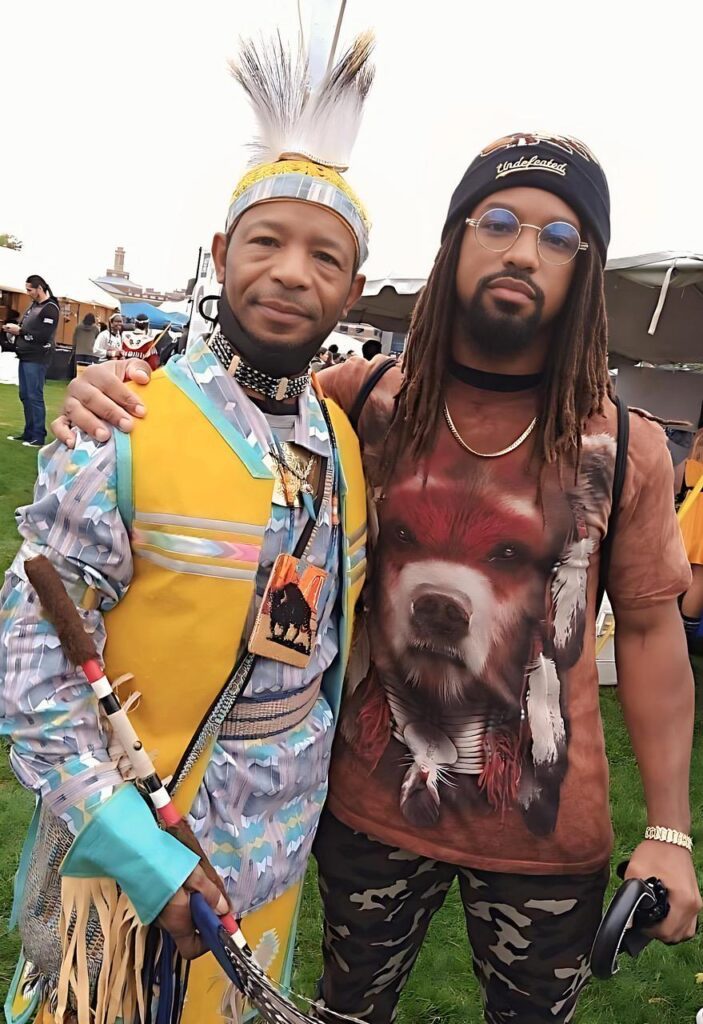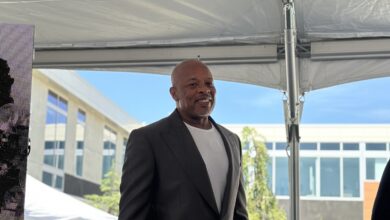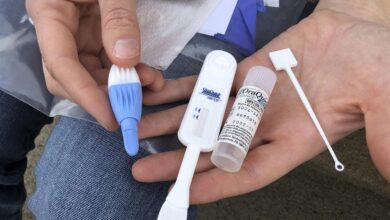
Lila Brown | California Black Media

A growing number of Black Americans, relying on newly digitized federal records and other sources, are discovering direct bloodlines to Native American ancestors. These discoveries are inspiring individuals to trace and claim their Native American ancestry, leading some to apply for citizenship with tribal Nations.
When Daniel Bruce Kelly, 32, an actor and minister, began researching his genealogy, he was sure that he would identify a place in Africa where his family came from.
The Huntington Beach man who identifies as African American, says he was determined to prove his parents wrong. His mom and dad had begun discovering, exploring and embracing their European and Indigenous American ancestry.
In his research, Kelly discovered that his great-great-great-grandfather was registered as Cherokee on the Dawes Roll, a U.S. Government record listing individuals eligible for indigenous tribal membership.
Kelly also identified other family members listed as Indian on U.S. Census Bureau records.
“At first, I was offended that my parents didn’t want to claim to be African, but then I had this awakening. You can’t talk about Native American history without talking about the Black American Indians,” Kelly said.
Similarly, Cameron Lewis, 48, a truck driver from Sacramento, says he always heard family members talk about having “Indian in the family.” Delving into family documents, he found out that his great-great
grandfather acquired land in the mid-1800s in areas of Florida inhabited by Seminole Indians.
“I found it hard to believe that Whites would sell hundreds of acres of land to Blacks in the South during slavery. The more I started digging, I found out this particular ancestor also had brothers each owning hundreds of acres of land. This is when I started coming across terms, I was not familiar with describing my ancestors as ‘mulatto’ and ‘intransigent,’ and linking them to tribes such as the Yamasee, Catawba and Creek — terms I’ve never even heard of,” he said.
The Dawes Act of 1887 gave each tribal family head 160 acres of land and each single person 80 acres. The government would hold the land title in a trust for 25 years, after which each individual would receive United States citizenship and a “fee simple” land title. Under this law, Black tribal members, known as Freedmen, were granted approximately 2 million acres of land.
In Oklahoma’s Creek Nation, about a third of the land was Black owned.
While the Emancipation Proclamation was signed by President Abraham Lincoln in 1863, slavery in the continental United States did not fully end as a legal institution until June 14, 1866, when the Creek Tribe agreed to abandon enslavement of African Americans. That was the day after Congress approved the Fourteenth Amendment.
Recent efforts to recognize historical injustices against Native Americans have seen progress, such as last month, during Native American Heritage Month, Gov. Gavin Newsom issued a Proclamation celebrating the unveiling of a monument dedicated to California Native peoples at the State Capitol.
While this progress is appreciated, many Black Native Americans feel that the history of their Black Freedman ancestors remains largely overlooked.
“We have to tell the whole of the story,” said Cherokee Nation Principal Chief Chuck Hoskin Jr in 2022 during the 70th annual Cherokee National Holiday.
The Cherokee Nation has committed to including the descendants of Cherokee Freedmen.
“We have to acknowledge that we enslaved African Americans under our own law. If we ignore or suppress that, we do to Freedmen and their descendants the same things that has been done to Cherokee people. Any nation is a stronger nation if they tell their whole story: the tragedy, the triumph, and the chapters that are dark and difficult,” added Hoskin.
According to the 2020 U.S. Census, approximately 1.4 million Californians identify as full or partially American Indian and Alaskan Native. California also has the largest American Indian population in the country, with close to 900,000 American Indian residents.
A population map commissioned by the Cherokee Nation in 2013 shows that California has the second-largest Cherokee population in the country, after Oklahoma, where many displaced American Indians settled after the Trail of Tears.
In 2021, the Cherokee Nation Supreme Court removed the phrase “by blood” from its constitution. That change acknowledges that the descendants of Black people once enslaved by the tribe, the “Cherokee Freedmen,” have the right to citizenship, which means they are eligible to run for tribal office and to access other resources. In 2022, The University of California (UC) began waiving tuition and fees for Californians who are members of federally recognized Native American tribes.
However, debates about who is — and who is not — American Indian continues with some darker skinned indigenous people facing challenges in claiming their Native American ancestry.
Not all Native Americans had lighter skin as often shown in Hollywood movies. There are even historical renderings of phenotypically Black Indians drawn by professional artists in the early 1800s.
For people without a record of acceptance into what are considered “the Five Civilized Tribes” — Cherokee, Choctaw, Creek, Seminole and Chickasaw Indians — many have been denied citizenship.
For example, the 3x great-grandmother of Kiori Jordan-Marquering, 46, of Santa Rosa who was known as “Indian Julia,” was denied acceptance into Choctaw Nation based on her appearance.
“She is visibly Negro,” the space reserved for “office use” on her application form noted.
“My ancestor’s application for citizenship was contested in court for more than three years before ultimately being denied,” says Jordan-Marquering.
The Choctaw Nation has consistently refused to recognize Freedmen as citizens.
Only the Cherokee Nation and the Seminole Tribe of Florida recognize Freedmen as eligible for citizenship.
This resource is supported in whole or in part by funding provided by the State of California, administered by the California State Library in partnership with the California Department of Social Services and the California Commission on Asian and Pacific Islander American Affairs as part of the Stop the Hate program. To report a hate incident or hate crime and get support, go to CA vs Hate




